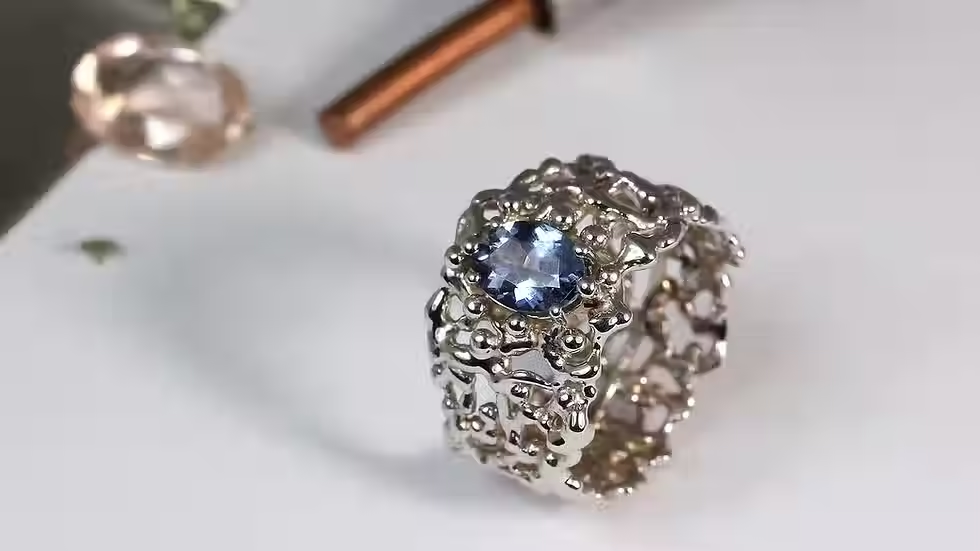Gemstone Cuts in Jewelry World
- Mar 11, 2025
- 3 min read
Updated: Mar 13, 2025
In the world of jewelry and gemstone design, gemstone cuts play a crucial role in a stone's appearance, brilliance, look, and overall value. Cutting is not just a technical process; it is an art form that combines precision, experience, and knowledge. A well-chosen gemstone cut can enhance a stone's natural beauty, amplify its light performance, and even influence its perceived size. Each cut creates unique optical effects and affects how light travels through the gemstone.
Gemstones have been shaped in various ways, from simple hand-cut forms to modern, computer-guided techniques that ensure exceptional precision. Below, we explore some of the most common gemstone cuts used in jewelry.
Brilliant Cut
The most well-known and popular cut, especially for diamonds, is a brilliant cut. It is designed to maximize light reflection and create a distinctive sparkling effect, featuring 57 or 58 facets carefully arranged for optimal brilliance.
Princess Cut
The princess cut is an elegant and modern style with a square or rectangular shape. Because of sharp lines and strong brilliance, it makes a popular choice for engagement rings, ranking as the second most popular cut after the brilliant cut.
Emerald Cut
This cut is commonly used for emeralds and other gemstones. It is characterized by broad, step-cut facets that create a refined, mirror-like effect. Due to its open structure, imperfections and inclusions in the stone are more visible.
Oval Cut
The oval cut resembles the brilliant cut but has a more elongated shape, which can create the illusion of longer fingers. Its numerous facets ensure depth and excellent brilliance.
Pear (Teardrop) Cut
Features of both the oval and marquise cuts are combined in the pear or teardrop cut. Its unique shape offers an elegant appearance, making it an excellent choice for pendants and earrings.
Marquise Cut
The marquise cut has an elongated, pointed shape with striking brilliance. According to legend, it was inspired by the smile of the Marquise de Pompadour. This cut enhances the perceived size of the gemstone and is often used in rings.
Cushion Cut
A square or rectangular shape with rounded corners, giving it a soft, classic appearance, is the cushing cut. It is favored for its depth and warm, romantic glow.
Kite cut
Modern and unique gemstone cut, recognized for its geometric shape resembling a kite. Its sharp lines and a combination of steps and brilliant facets create dynamic brilliance and depth. Often used in avant-garde jewelry, it serves as either a striking centerpiece or an elegant side stone, adding a bold and sophisticated touch.
Baguette Cut
The baguette cut features a rectangular shape with step-cut facets. It is often used as a side stone in jewelry, adding a touch of elegance and sophistication.
Cutting gemstones requires exceptional precision and skill, yet it also carries a touch of magic. The right cut can completely transform a gemstone’s appearance, enhance its brilliance, and bring it to life. Just as every stone holds its own story, its cut determines how that story will shine in the light. When choosing jewelry, consider not only the type of gemstone but also its cut—because it is the cut that creates that special moment, captured in a dazzling play of light, destined to enchant forever.












Comments